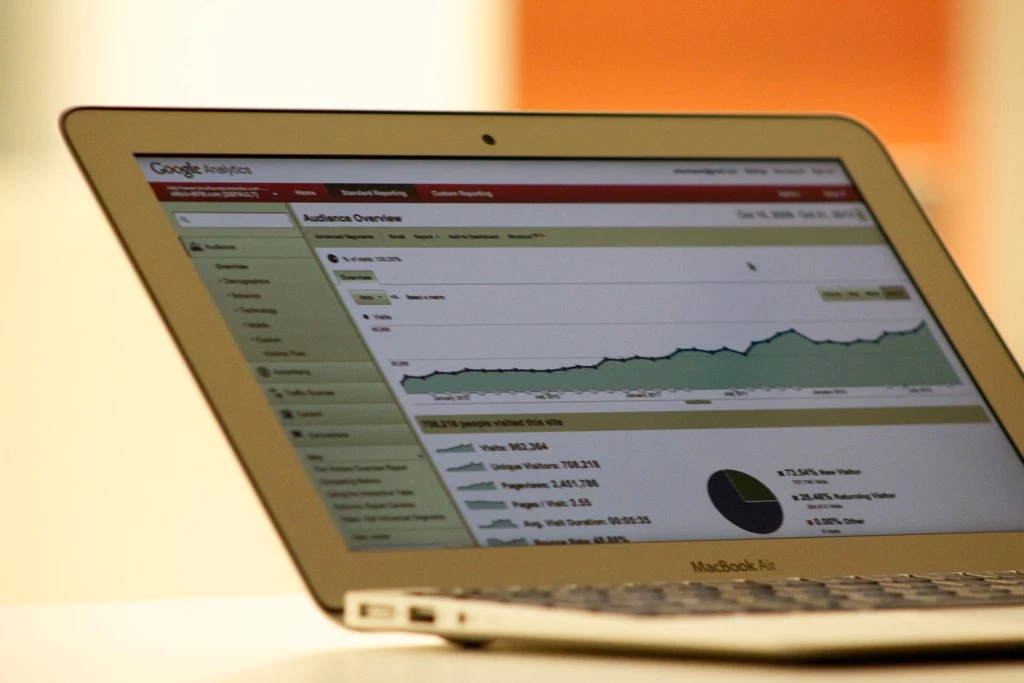
Partner Article
Five things businesses need to know about Google Analytics 4
Next year, Google’s flagship Universal Analytics will be phased out, meaning businesses must begin preparing for this major change.
For any online business, one of the most valuable assets is data. Google Analytics has long been recognised as the leader in helping businesses track and analyse this data, make informed marketing decisions and build a successful SEO strategy.
Universal Analytics was originally designed for data measurement based around cookies and the desktop web.
Although it was built with privacy in mind, with an evolving digital landscape, its methods were soon considered out of date. Two and a half years ago, Google Analytics 4 was launched to replace it. While many businesses will have already adopted the new system, for those that haven’t, the next few months will be important.
As the deadline looms for its retirement on July 1, Jonty Sutton, CEO at SQLI Digital Experience looks at why it’s vital to start migrating to Google Analytics 4 sooner rather than later.
Five things businesses need to know about Google Analytics 4:
Google Analytics 4 brings analytics into the present, while helping businesses to future-proof processes, it also give businesses more control over how they track conversions, returning visitors, and much more.
It works across different touch points
Moving on from a single platform viewpoint, Google Analytics 4 gives businesses a complete view of the customer lifecycle thanks to a multi-platform, event-based measurement model.
One major fitness brand has used it across its website and app, helping its team better understand how users moved through the purchase funnel, reducing user drop-off by 9 per cent and increasing product page click-throughs by 5 per cent.
No more cookies
Cookies have been used for decades to track internet users and deliver a personalised experience. Google Analytics 4 will not use third-party cookies.
It improves ROI
Businesses can analyse marketing activities right across the customer journey, helping brands understand how it collectively influences conversions.
This metadata can be exported to Google Ads and Google Marketing Platform media tools to optimise campaigns.
It has better privacy controls for customers and brands
Google Analytics 4 helps businesses meet evolving needs with better controls for data collection and usage. It also no longer stores IP addresses, helping brands meet evolving customer expectations.
It allows businesses to do more with data
The latest version of Analytics helps businesses learn even more about user behaviour and conversions, creates new audiences of users and highlights critical insights to improve marketing, all through machine learning which generates predictive insights.
Free Universal Analytics will stop processing new hits on July 1, 2023 and 360 Universal Analytics on October 1, 2023. After these dates, businesses will be able to access previously processed data until January 1 2024.
Businesses must make the move to Google Analytics 4 as soon as possible to build the necessary historical data.
SQLI recommends partners prepare now for this full migration to give themselves time to understand the new features and interface and to give themselves at least a year’s worth of historical data – and ensure they aren’t caught out when Universal Analytics is phased out.
This was posted in Bdaily's Members' News section by Business News .
Enjoy the read? Get Bdaily delivered.
Sign up to receive our popular morning National email for free.








 Putting in the groundwork to boost skills
Putting in the groundwork to boost skills
 £100,000 milestone drives forward STEM work
£100,000 milestone drives forward STEM work
 Restoring confidence for the economic road ahead
Restoring confidence for the economic road ahead
 Ready to scale? Buy-and-build offers opportunity
Ready to scale? Buy-and-build offers opportunity
 When will our regional economy grow?
When will our regional economy grow?
 Creating a thriving North East construction sector
Creating a thriving North East construction sector
 Why investors are still backing the North East
Why investors are still backing the North East
 Time to stop risking Britain’s family businesses
Time to stop risking Britain’s family businesses
 A year of growth, collaboration and impact
A year of growth, collaboration and impact
 2000 reasons for North East business positivity
2000 reasons for North East business positivity
 How to make your growth strategy deliver in 2026
How to make your growth strategy deliver in 2026
 Powering a new wave of regional screen indies
Powering a new wave of regional screen indies